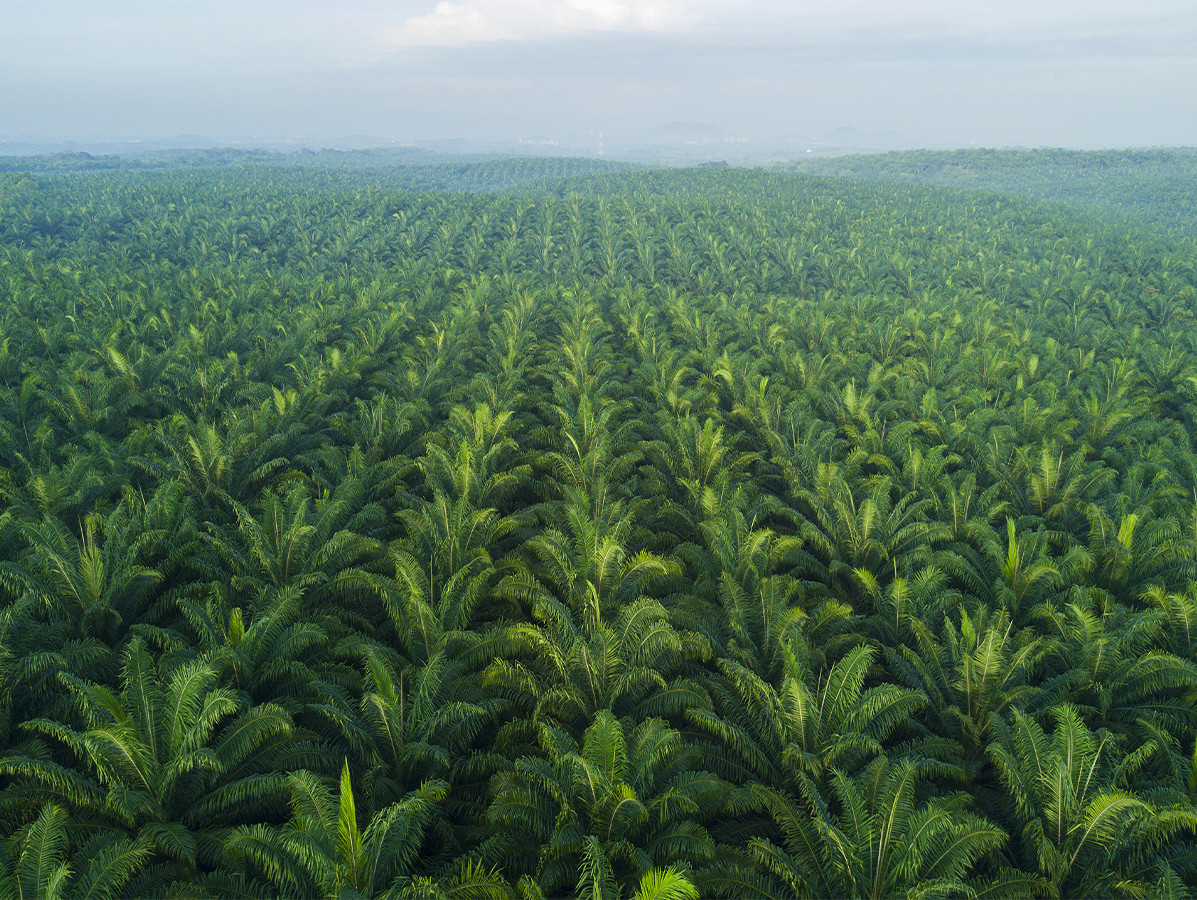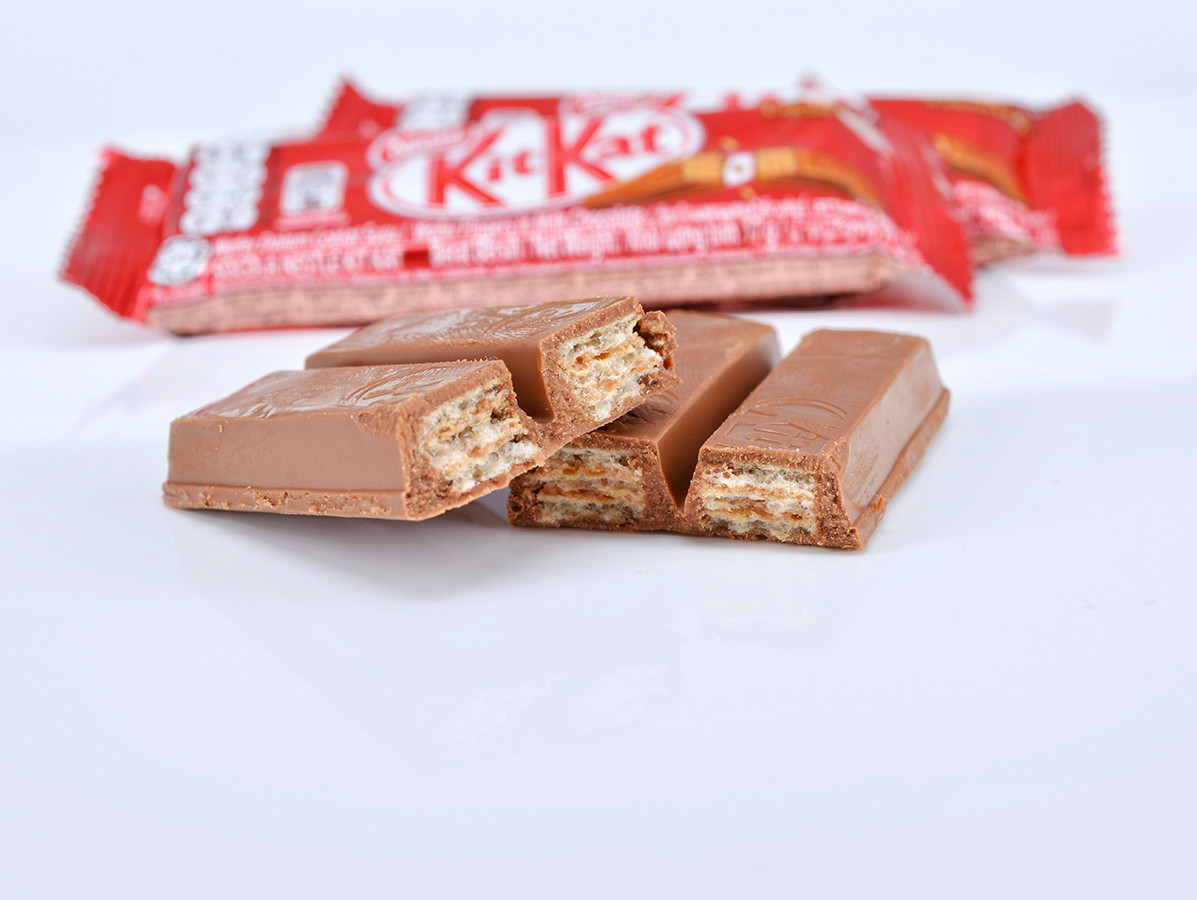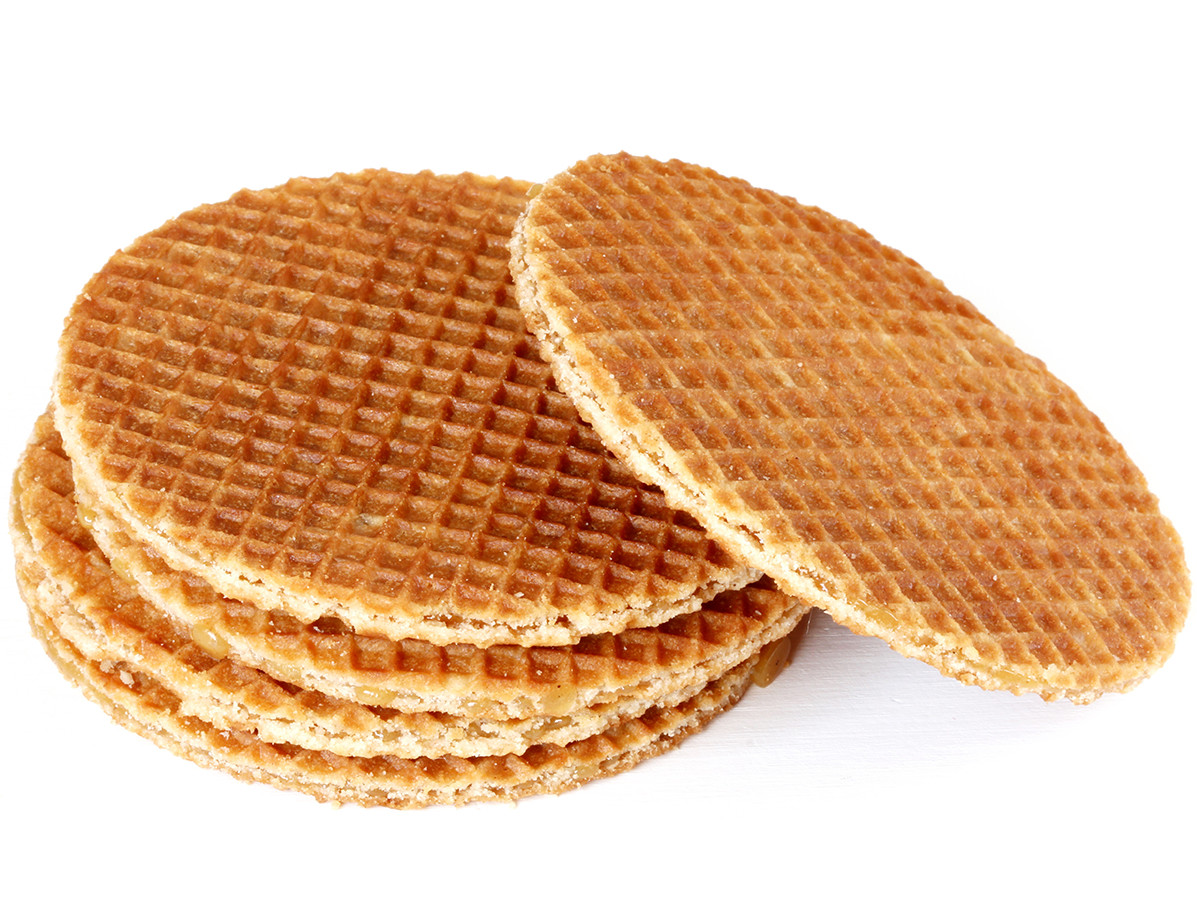
For many consumers, the word palm oil conjures up a pleasant image of tropical islands with a white beach lined with palm trees, preferably with a parade of dancing beauties in wicker skirts and wreaths of flowers in their hair. Reality is a little more nuanced. Large plantations with trees neatly lined up are the source of this extremely cheap oil.
It is typical that palm oil as a product is not found in supermarkets. However, it does appear in many derived products, such as margarines and cheap hard frying fat. Palm oil is also found in almost all low-cost products, such as penny wafers and coffee wafers with a hint of cocoa. In its fully hydrogenated form, this ingredient is popular in the crust margarines that bakers use to make puff pastry products, as well as in cheap home and kitchen margarines. You can generally only make junk from junk.
Because of the price pressure from the supermarkets, replacing cream butter with hardened palm fat is one of the most effective methods to reduce the cost price. Add a little butter flavouring and the 'cheap' product is ready! As long as the consumer accepts this substitution through ignorance or disinterest, the phoney manufacturer can maintain and even expand this cost-saving measure for years to come. The benefits of the low price are exchanged for the health risk of the MCPD esters of palm oil.
The food industry has for years allowed itself to be lulled into a false sense of security by an uninterrupted supply of very cheap palm oil, and is now in a position of vulnerability because of its own success. It has now become largely dependent on the supply of palm oil, as the current supply of alternative cheap oils such as rapeseed, sunflower and peanut oil is totally insufficient. If palm oil is banned 100% for any reason, it is estimated that food prices will rise between 10 and 30%. There will reportedly be a major scarcity in palm oil in Q1 of 2022 due to the aftermath of the Covid-19 pandemic or the power of those speculating.
Around 1990, KRR, one of the world's most notorious private equity firms, started buying up (food) companies with borrowed money. Cutting costs and selling on at a profit is the earnings model of this club. Private equity firms are much criticised. In order to buy up companies, they create high debts, which the acquired companies then have to pay for themselves. Because of the financial squeeze, investments and R&D are subsequently put on the back burner.
The palm oil processing factories can be smelled from a great distance in the tropical regions. Rotterdam classification officers (modern word for cleaners) of the tankers that bring this oil in for refining know what it smells like: at the bottom of the hold, a watery mass gathers where spoilage is flourishing.
The refining steps of vegetable oils are:
In palm oil, MCDP esters (in chemical terms 2-MCPD 3-MCPD (monochloropropane diol) and glycidol can occur, formed from the chlorine compounds during the deodorisation process. Soybean and rapeseed oils may also contain these 'natural' compounds to a lesser extent. Glycidol has been proven to be mutagenic (carcinogenic). In 2016, EFSA published a report naming the health risks. In 2018, the European Commission implemented regulations imposing maximum levels for glycidol of 1,000 µg/kg in vegetable oils and fats; in my opinion, a value that is far too high for a mutagenic substance.
Vegetable oils contain no vitamins. The refining process ensures that polyphenols are removed, to make the oil as clear as possible. In animal fat, read butter, the vitamins A, B, D, E and K are naturally present. When the margarine industry emerged in the late 1800s, the government issued a margarine decree, which meant that the industry had to add vitamins A and D artificially to avoid endangering public health. Vitamin A prevents blindness and vitamin D the 'English disease'. Many consumers from poor families embraced the artificial butter as a cheap alternative to cream butter, which was already expensive at the time. There are margarines that claim to be a source of vitamin A and D. The consumer is not told that this is a synthetic butter. The consumer is not told that these are synthetic vitamins that must be added by law. This is deception.
Sustainability certificates such as Fairtrade and UTZ have been introduced in the cocoa and coffee trade within a very short space of time. Cocoa farmers receive a higher price for their products, but have to spend more on training which, you guessed it, is provided by the same institutions. Integrity? Mwah.
RSPO (Roundtable on Sustainable Palm Oil) is the organisation that aims to ensure that all processors of palm oil use certified oil. With its headquarters in Geneva, among other places, the organisation applies criteria that appear to be designed mainly to please the host countries Indonesia and Malaysia. The RSPO's requirements for combating the deforestation of virgin forests are too weak. As far as I am concerned, the integrity of this certificate is questionable, given the corruption indices of the countries where these certificates originate. Most consumers want to avoid this oil for environmental reasons. It would harm the Orang Utans and so on. The fact that the jungles on Sumatra, Borneo and Malaysia are being rapidly converted to plantations is just a side issue. That is not what the discussion is about right now. Orang Utans are hideous animals that I have little interest in. The unhealthy properties of palm oil are much more worrying in my opinion.
Hungry for more reading material about the fumbling with food? Buy the book 'Lies on my plate' by IJsbrand Velzeboer. This text is an excerpt from that book.
ISBN 978 90 810612 3 0

Photo: ©hilalabdullah/shutterstock.com
KitKat
KitKat is a typical product example where the quality of the product has noticeably deteriorated due to the replacement of butter by palm oil. The original recipe of KitKat has been completely dismantled since the takeover of Rowntree Mackintosh by Nestlé in 1988. The product has been degraded to a tasteless penny wafer in bar format, covered with an ill-tempered semi-transparent chocolate layer. In addition to cocoa butter, it also contains other vegetable fats, including palm.

Photo: ©Micra Cooper
Stroopwafels
Every layman knows that syrup waffles (stroopwafels) contain butter. If butter is replaced by cheap fat, the flavour has to be enhanced by using flavouring substances. These are often too expensive. In some waffles, all the butter has been replaced by palm fat and a little rapeseed. Fortunately, there are still tasty waffles. At Aldi and Lidl under the name Sondey, I found real syrup waffles with 25% butter. Made by Castelijn in Bergambacht.
Mainphoto:©nelzajamal/shutterstock.com
Source: Vakblad Voedingsindustrie 2022